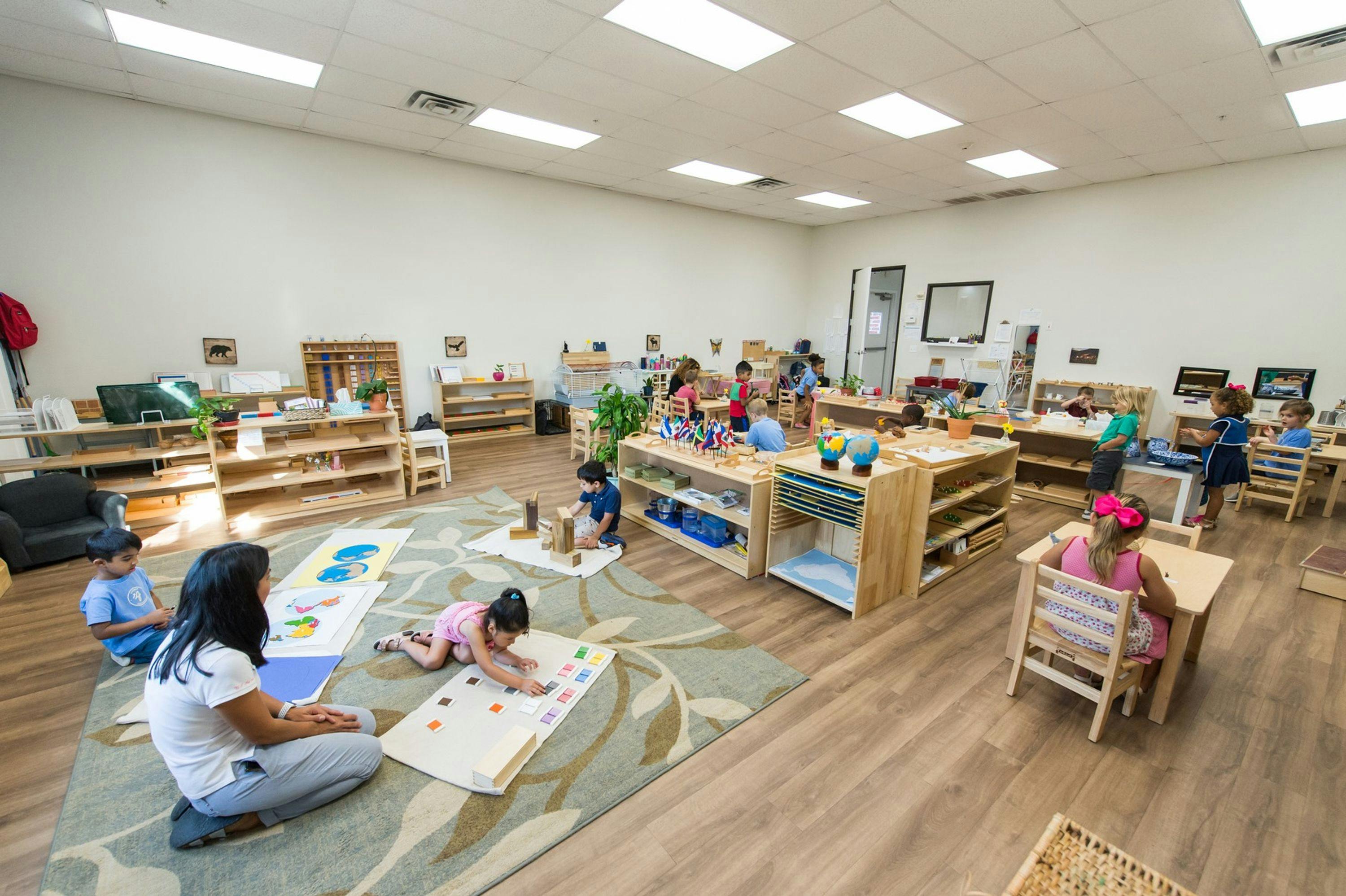How Montessori Balances Children's Developmental Needs (Even Through a Pandemic)
Montessori classrooms stand out in a few ways that allow for today’s heightened focus on health and safety without changing the way our children are naturally drawn to learn
The Guidepost Team
Today more than ever, parents are wanting to understand how children can stay in school safely in a way that won't overhaul the normalization of a calm, socially-supportive learning environment. Montessori classrooms stand out in a few ways that allow for today’s heightened focus on health and safety without changing the way our children are naturally drawn to learn – where they remain in control of their days as the capable individuals they are!
Freedom of Movement
Montessori classrooms are designed around movement as a crucial part of how children learn – not as something separate from learning that must be reserved for outside breaks. Children are not expected to sit for prolonged periods in congregated rows of desks under an adult’s lead. Instead, Montessori classrooms have large, open floor plans with numerous small-group tables and floor space for individual work mats.
Children navigate the classrooms freely and independently and choose what to work on, for how long, where to work and who to work with. Socialization happens naturally throughout more smaller interactions rather than one-size-fits-all activities where everyone works on the same thing at once.
Navigating a classroom with this type of autonomy is not enforced solely out of heightened health and safety needs – children are wired to learn through freedom of movement and have always found great joy in navigating classrooms independently. The message is not “stay apart,” it is, “you are capable to explore your current interests.”
Bodily Autonomy and Care of Self
Since children in Montessori are given space to take the lead – as promoted by a classroom meticulously prepared for such freedom – they are also more inclined to have already learned appropriate limits and courtesies as a result of navigating more social interactions.
As part of Montessori's focus on Grace and Courtesy, the guides and children interact freely but within the bounds of what constitutes a respectful, functioning community – where manners and social skills are prioritized equally to academics.
Children are not only expected to help care for the classroom environment collectively but are empowered to care for themselves individually. Adults are not the ones washing children’s hands or wiping their noses for them; Intricate lessons on how to wash your hands, how to blow your nose, how to cough in your elbow, have long been emphasized as part of life skills to be practiced.
Navigating their days with respect to others’ space and with practice of proper hygiene is not new for children in a Montessori classroom. They are trusted from an early age to not only be independent in their learning, but with respect to their own bodies!
See the Montessori steps of hand washing here.
Uninterrupted concentration
The freedom found in child-led learning not only promotes movement and respectful bodily autonomy, it also promotes the specific skill of concentration. During a Montessori work cycle, the guide serves a passive role of supporting children in their individual and small-group pursuits – not an assertive role of directing a strict schedule onto the child. This means a child's day is relatively uninterrupted, on purpose, so that we protect the time and space needed for them to deeply concentrate and deep dive into their passions. What starts as just a few minutes of concentration in the early years grows into hours of capable focus as they get older.
What does this mean for COVID precautions? It means it is nothing out of the ordinary for Montessori students to have the adults in the room "physically distance" from their work; it has long been the norm under the belief that children should not be underestimated and that too much help is a hindrance. The materials in a Montessori classroom are “self-correcting,” further setting the students up for success by way of learning through their own experience.
With children empowered to learn by doing, this frees Montessori guides with more time to objectively observe each child and individualize their engagement with each – balancing the importance of independence with personalized emotional and social support that all children need to truly thrive.
There are new protocols for the parent and educator that are noticeably different – like masking and attending some events virtually. However, when you consider the child’s experience in a Montessori classroom, it is actually quite familiar and normalized. Paired with the belief that treating children as capable includes giving them honest, factual information, a Montessori classroom positions children to return to school through the pandemic with a sense of physical and emotional control – not fear.
The Guidepost Team
The Guidepost Team is a group of writers and educators dedicated to helping demystify all things Montessori.
Sign up for our newsletter
Get started with our community today! Sign up for resources.
